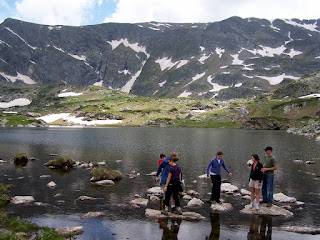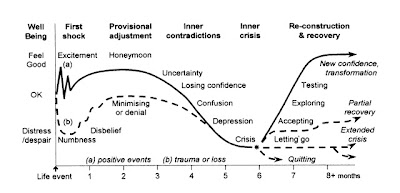This is it.
Peace Corps Bulgaria is no more. Well that's not entirely true, because for as long as there is a person alive whose life was touched by it then I believe Peace Corps Bulgaria is still alive. That at least gives me some comfort today as the volunteers are no more, the office shuts down, and the last employees leave for the last time.
I'm quite sure that most people don't really care, or know why they would care about this subject. But I'm equally sure that each person to go through PC BG, even for a short while, cares and knows why.
Thinking back on my experiences throws me into a wash of emotions: Excitement for the unknown that became the familiar. Hope for the apathetic students that somehow allowed that spark to show through every once in a while, and still keep in touch. Fondness for the harsh and consonant dripping speech that became the language of my dreams. Appreciation for the winter that came on strong with its thick snow for thick bread. Fear of the blood sucking beasts, because I never knew humans could get fleas and never imagined they would be as vicious as they are. Joy for the toughness, roughness, hardness I learned, then learned to let go of.
And above all there are two emotions that completely overwhelm me:
Thankfulness for a staff so dedicated and diligent I know I will never, NEVER see their equal in my lifetime.
And Love. Love for a country that became my home in ways I am still trying to understand, for a people that accept me without question and so completely that I have more mothers/ sisters/ brothers/ babas than I can count, for a culture so rich that I'll be learning horos for the rest of my life-
for Bulgaria.
Peace Corps Bulgaria is no more. Well that's not entirely true, because for as long as there is a person alive whose life was touched by it then I believe Peace Corps Bulgaria is still alive. That at least gives me some comfort today as the volunteers are no more, the office shuts down, and the last employees leave for the last time.
I'm quite sure that most people don't really care, or know why they would care about this subject. But I'm equally sure that each person to go through PC BG, even for a short while, cares and knows why.
Thinking back on my experiences throws me into a wash of emotions: Excitement for the unknown that became the familiar. Hope for the apathetic students that somehow allowed that spark to show through every once in a while, and still keep in touch. Fondness for the harsh and consonant dripping speech that became the language of my dreams. Appreciation for the winter that came on strong with its thick snow for thick bread. Fear of the blood sucking beasts, because I never knew humans could get fleas and never imagined they would be as vicious as they are. Joy for the toughness, roughness, hardness I learned, then learned to let go of.
And above all there are two emotions that completely overwhelm me:
Thankfulness for a staff so dedicated and diligent I know I will never, NEVER see their equal in my lifetime.
And Love. Love for a country that became my home in ways I am still trying to understand, for a people that accept me without question and so completely that I have more mothers/ sisters/ brothers/ babas than I can count, for a culture so rich that I'll be learning horos for the rest of my life-
for Bulgaria.



